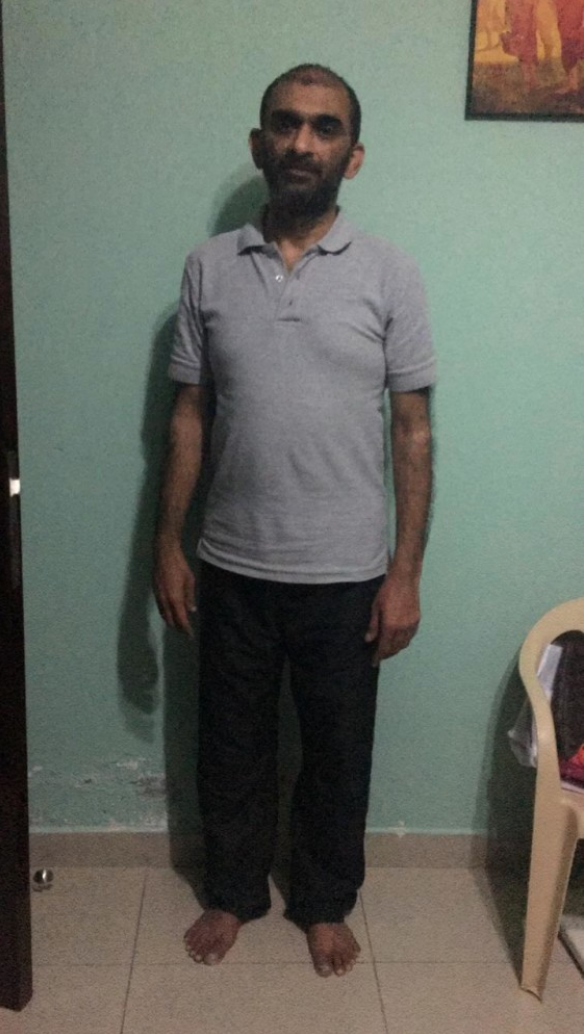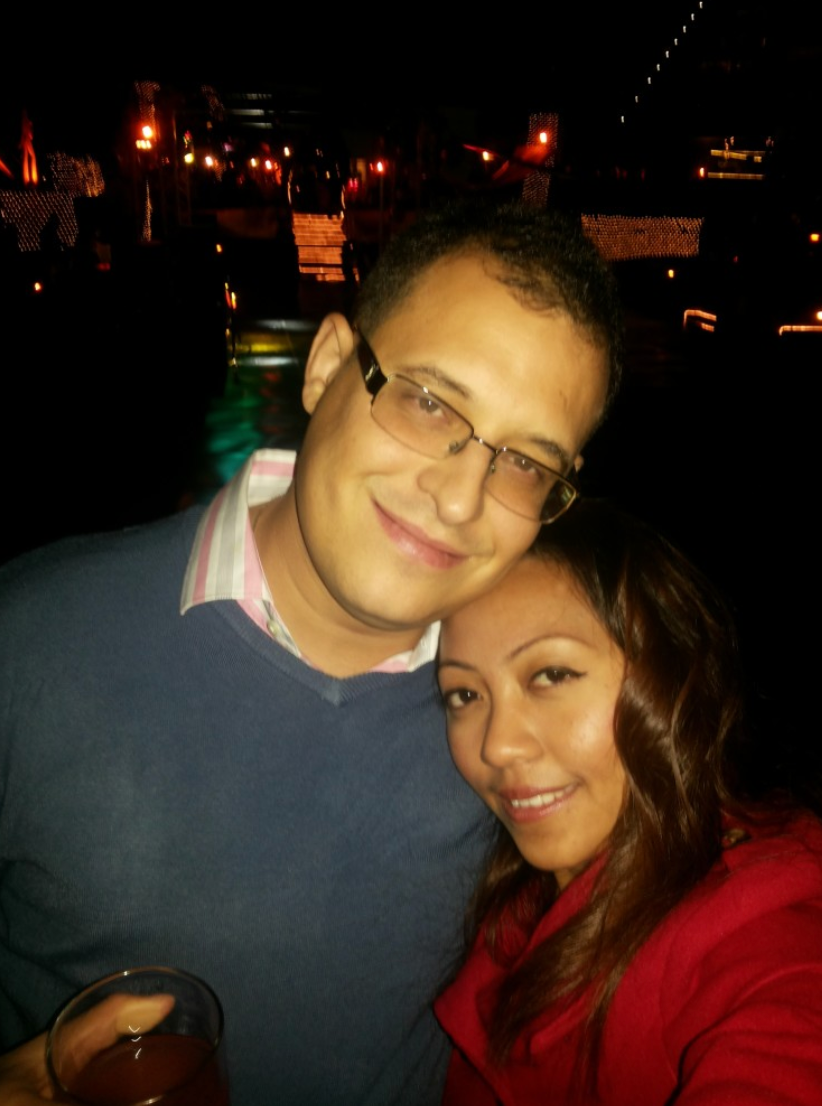Foreign Investors in Ras Al Khaimah & UAE face jail, Interpol, corruption & business theft
- Detained in Dubai
- Feb 11, 2019
- 7 min read

Last month, Dubai Ruler Sheikh Mohammed bin Rashid Al Maktoum viewed a number of infrastructure projects for the emirate worth Dh6.5 billion; Dubai also recently announced plans to expand the DIFC complex; Dubai Expo 2020 is set for October this year, representing potentially hundreds of billions of dollars in contracts; and it seems that investment projects in the UAE are in a continuous state of acceleration.
Potential investors are encouraged, seduced even, by headlines like these; and that is the intention. Radha Stirling, founder and CEO of Detained in Dubai, reads such stories, however, as ‘too good to be true’ enticements that have led far too many businesspeople into personal and financial ruin.
Detained in Dubai supports expats in the UAE and Gulf region who have become wrongfully entangled in the legal system; and Stirling says approximately 80-90% of their work relates to financial and business disputes.
The UAE has created an image as a new land of extravagant opportunity; an arid desert where the rulers are willing to spend whatever it takes to turn it into an oasis. With an increasing focus on diversifying the economy beyond a dependency on oil revenues, investment projects abound in every sector; and consequently, Stirling says, “incidences of fraud, breach of trust, embezzlement, extortion, and fabricated criminal cases against foreigners have increased rapidly in recent years.”
The Emirates has taken several steps to ease the way for foreigners starting businesses in the country, and set up special economic zones that incentivise investment. These superficial criteria tend to make the UAE rank highly in surveys on investment risk and the safety of doing business, but the real dangers of working and investing in the UAE can only be learned through experience. “We are inundated with cases of foreign business people and investors who have seen their assets stolen, their careers ruined, their reputations destroyed, or who have been incarcerated on false charges; all because they ran afoul of powerful locals,” Stirling explains, “Sometimes they are literally punished for being too successful and an Emirati partner wants to forcibly increase his share of the profits; or else a foreign professional may be made to take the blame for the misconduct of other local staff. Oftentimes, an expat can be the sacrificial victim in personal conflicts between Emiratis without the foreign national ever knowing what is going on.”
The plight of Oussama El Omari serves as a cautionary case in point.
In 2000, Ras Al Khaimah ruler Sheikh Saqr bin Mohammed Al-Qassimi appointed his son Faisal to oversee the newly created Ras Al Khaimah Free Trade Zone Authority (RAKFTZA) to help attract foreign investment to the emirate, which was comparatively poor in oil revenues. Faisal hired Oussama El Omari to lead the ambitious project, and within a few short years as CEO, El Omari succeeded in turning RAKFTZA into the “Best Emerging Free Zone” in the world.
However, unbeknownst to El Omari, rivalries within the royal family would bring his stellar success to a screeching halt with the death of Sheikh Saqr in 2010. Faisal’s brother Saud seized control after his father’s death, though Faisal was next in line to be Crown Prince. This move was met with resistance by most, if not all powerful tribes in Ras Al Khaimah, so Sheikh Saud launched a smear campaign against Faisal in order to disqualify him from succession in the minds of the tribes. Sheikh Saud accused his brother of mismanaging RAKFTZA and alleged the senior staff, including El Omari, were guilty of embezzlement and breach of trust. Everyone who had worked under Faisal was tarred in Sheikh Saud’s campaign, and most, if not all, of the pending investment agreements at the time were unilaterally nullified by the Sheikh. Anyone who stood up for Faisal or who tried to rebut the accusations of mismanagement found themselves facing criminal charges; foremost among them, Oussama El Omari.
That is how quickly accolades can turn into allegations in the UAE. Faisal was placed under house arrest, and Oussama El Omari flew back to America, where he holds citizenship, in order to fight the charges in US courts. “I was denied a hearing in the UAE, and I knew that the Ras Al Khaimah courts would never rule against the wishes of Sheikh Saud.” El Omari says, “I was tried and convicted in absentia, and every foreigner among the senior staff have either been jailed or are facing charges in the UAE; all so Sheikh Saud could justify his grab for power to unseat his brother as Crown Prince by means of a phony anti-corruption campaign.”

American national Mr Oussama El Omari, former CEO of RAK FTZ
The vindictive onslaught against Faisal’s former staff have even resulted in the sentencing of lawyer Johnson George, whose only job under El Omari was to oversee the legal fine print on RAKFTZA contracts. Just last month, Mr. George was sentenced to 3 years imprisonment. After almost a year in prison, he was finally granted bail but is expected to be jailed again on the 19th of this month.

Lawyer Johnson George in bad shape following his almost year long detention
El Omari’s court battle in the US has been frustrated by Sheikh Saud’s invocation of immunity, and the process has been marred by serious irregularities (such as private meetings between the Sheikh’s lawyers and the judge with the exclusion of El Omari’s attorneys). Ras Al Khaimah reported El Omari to Interpol and he was issued with a Red Notice, severely disrupting his ability to travel and earn a livelihood. The political intrigue behind El Omari’s sudden and unwarranted fall from grace may be unique, but his powerless victimization as a foreigner in the UAE is anything but unusual.
Also in Ras Al Khaimah, Malaysian citizen Richard Lau was held without charge for nearly a year when a local partner in the company employing him alleged that his salary and bonuses were too high and constituted embezzlement. He was not freed until the foreign minister of Malaysia personally intervened.
Again in Ras Al Khaimah, French national Reda Boulahdid was running a successful machine parts business when he suffered an aggressive bribery demand by RAK customs agents. His wife was assaulted and detained for hours while customs officials raided Boulahdid’s warehouse and home after he refused to surrender 20% of his profits to them. He was subsequently charged with commercial fraud; and even though he proved his claims of bribe solicitation against the customs officials, his warehouse and factory remain closed until today, and he is still fighting the case in court, facing the threat of imprisonment on a daily basis.

Reda Boulahdid & wife before his ordeal
Radha Stirling explains that the legal system in the UAE is blatantly biased in favour of Emiratis and the standard of evidence is well below international norms of due process. “Emiratis are a fairly small percentage of the population in the UAE, and they are a tightly-knit community. The Public Prosecutor and the courts take the testimony of locals at face value and require little or no evidential substantiation. If the local happens to hail from a notable family, foreigners barely participate in the legal process.” She says, “We have seen glaring violations in court proceedings; the accused is often not allowed to testify, they cannot call witness; cannot submit evidence for their defiance; frequently they either have no legal representation or else are never allowed to meet their lawyers.”
In 2008, British citizen Dr. Mohammad Haddad tells of how he experienced firsthand the astonishing degree to which the UAE legal system disregards the rights of foreign investors to accommodates locals when his Emirati business partner insisted that he sell his 50% share in KM Holdings (worth around £250 million) for one-fifth of its value. The partner, who belongs to an influential family, told Haddad that she would have him thrown in jail if he refused.
When Haddad was barred entry the following day into the company he had built, and found the electricity and water at his villa suddenly turned off, he realised this was not an idle threat and immediately returned to the UK.
His partner then employed Habib Al Mulla, chairman of multinational law firm Baker & McKenzie’s UAE branch, and a close friend of the Ruler of Dubai, to file a slew of frivolous charges against Dr. Haddad in an effort to prevent him returning to the country to fight for his shareholdings in the company. Al Mulla actually appeared in court on several occasions representing both Haddad’s partner and Haddad himself in the same proceedings, without so much as Haddad’s Power of Attorney. Dr Haddad was shocked to learn that Al Mulla even confessed on behalf of Haddad to a charge of embezzlement, leading to his inevitable conviction in absentia. Eventually the assets of KM Holding were gifted in their entirety to a member of the royal family, effectively completing the theft of Dr. Haddad’s shares beyond recovery. The British Irish Commercial Bar Association (BICBA) cancelled their jointly held event with Dubai International Arbitration Centre (DIAC) after learning of the case.
Stirling explains that the foregoing cases are not isolated incidents, but represent common practice in the UAE. “We literally see dozens of cases every month in which foreign professionals, business people, and investors find contracts arbitrarily nullified, corporate bank accounts looted, whole companies seized, and a broad assortment of other breaches of trust perpetrated, and without exception, the foreign national is left to take the fall.
“The UAE has indeed made it easier to do business in the country for foreign investors, but they have not provided any protections to those investors against misconduct by local partners and sponsors. There appears to be an attitude among Emiratis that foreign capital and human resources are little more than streams of disposable short-term liquidity. Even if an expat has devoted years of their life building a business, they are not regarded as owners or even stakeholders in that business, but as expendable instruments for the enrichment of locals. The UAE markets itself to global investors as a place where it is relatively easy to make a considerable amount of money; what they do not tell you is that keeping that money is far more difficult, and that capital invested in local projects very often ends up being cash deposited into Emirati pockets.”

Radha Stirling, Founder & CEO of Detained in Dubai





